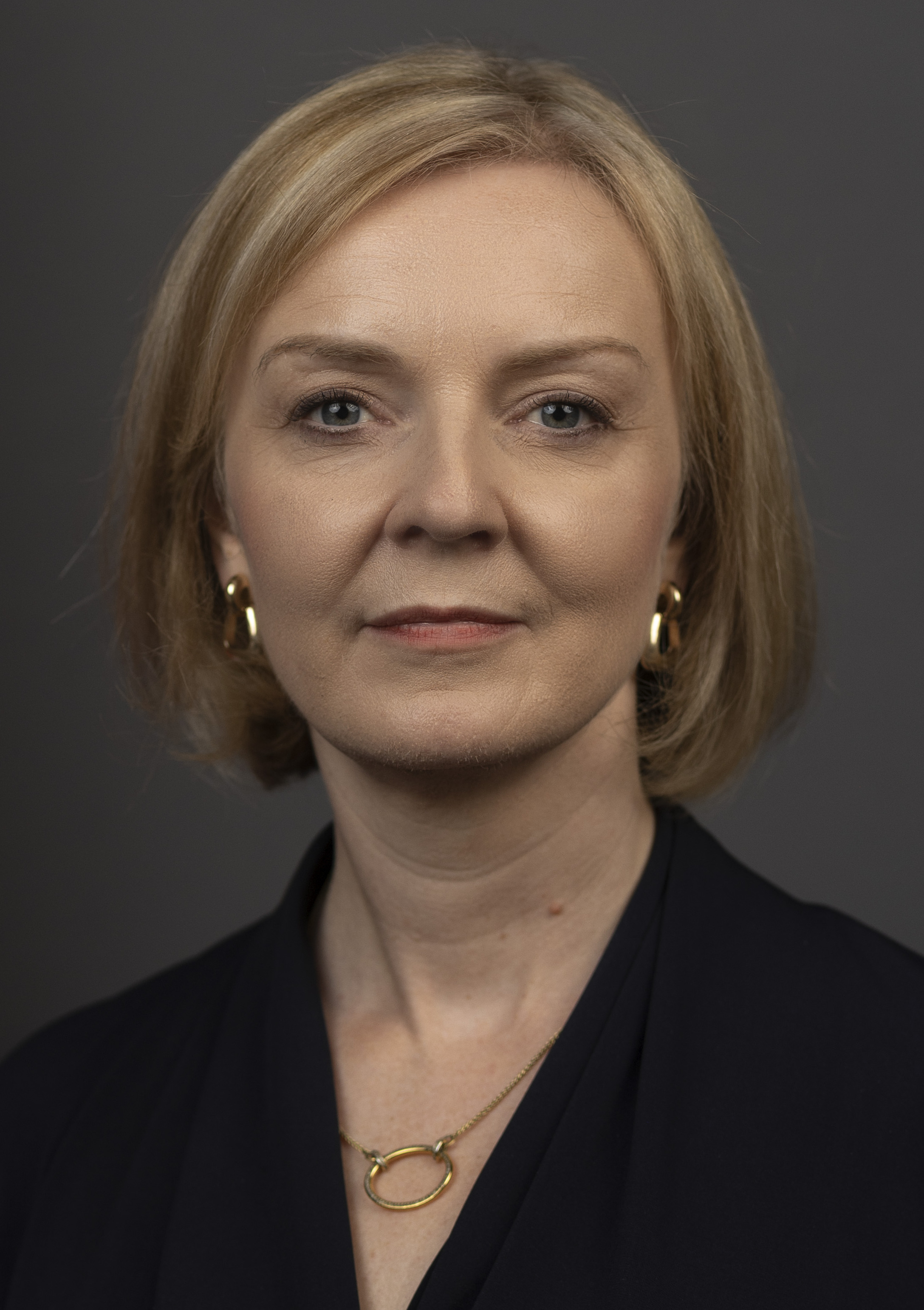Liz Truss
 Mary Elizabeth Truss (born 26 July 1975) is a British politician who served as Prime Minister of the United Kingdom and Leader of the Conservative Party from September to October 2022. On her fiftieth day in office, she stepped down amid a government crisis, making her the shortest-serving prime minister in British history. The member of Parliament (MP) for South West Norfolk from 2010 to 2024, Truss held various Cabinet positions under three prime ministersDavid Cameron, Theresa May and Boris Johnsonlastly as foreign secretary from 2021 to 2022.
Mary Elizabeth Truss (born 26 July 1975) is a British politician who served as Prime Minister of the United Kingdom and Leader of the Conservative Party from September to October 2022. On her fiftieth day in office, she stepped down amid a government crisis, making her the shortest-serving prime minister in British history. The member of Parliament (MP) for South West Norfolk from 2010 to 2024, Truss held various Cabinet positions under three prime ministersDavid Cameron, Theresa May and Boris Johnsonlastly as foreign secretary from 2021 to 2022. Truss studied philosophy, politics and economics at Merton College, Oxford, and was the president of the Oxford University Liberal Democrats. In 1996 she joined the Conservative Party. She worked at Royal Dutch Shell and Cable & Wireless and was the deputy director of the think tank Reform. After two unsuccessful attempts to be elected to the House of Commons, she became the MP for South West Norfolk at the 2010 general election. As a backbencher she called for reform in several policy areas including the economy, childcare and mathematics in education. Truss co-founded the Free Enterprise Group of Conservative MPs and wrote or co-wrote a number of papers and books, including ''After the Coalition'' and ''Britannia Unchained''.
Truss was the parliamentary under-secretary of state for childcare and education from 2012 to 2014 before Cameron appointed her secretary of state for the environment, food and rural affairs in a cabinet reshuffle. Although she campaigned for the UK to remain in the European Union, Truss supported Brexit following the outcome of the 2016 referendum. Following Cameron's resignation in 2016 his successor, Theresa May, appointed her secretary of state for justice and lord chancellor, making Truss the first woman to serve as lord chancellor in the office's thousand-year history; in the aftermath of the 2017 general election she was demoted to chief secretary to the Treasury. After May announced her resignation in May 2019 Truss supported Johnson's successful bid to become Conservative leader and prime minister. He appointed Truss secretary of state for international trade and president of the Board of Trade in July and subsequently to the additional role of minister for women and equalities in September. Johnson promoted Truss to foreign secretary in the 2021 cabinet reshuffle; during her time in the position she led negotiations on the Northern Ireland Protocol and the UK's response to the Russian invasion of Ukraine.
In September 2022 Truss defeated Rishi Sunak in a leadership election to succeed Johnson, who had resigned because of an earlier government crisis, and was appointed as prime minister by Elizabeth II two days before the monarch's death; her government's business was subsequently suspended during a national mourning period of ten days. In response to the rising cost of living and increased energy prices, her ministry announced the Energy Price Guarantee. The government then announced large-scale tax cuts and borrowing, which led to financial instability and were largely reversed. Facing mounting criticism and loss of confidence in her leadership, Truss announced her resignation as leader of the Conservative Party on 20 October. Sunak was elected unopposed as her successor, and appointed prime minister on 25 October. After spending the duration of Sunak's premiership on the backbenches, Truss lost her seat at the 2024 general election. Provided by Wikipedia
-
1
-
2by Elizabeth M. Myles, M. Elizabeth O’Leary, Rylan Smith, Chad W. MacPherson, Alexandra Oprea, Emma H. Melanson, Thomas A. Tompkins, Tara S. PerrotGet full text
Published 2020-10-01
Article
